
32 minute read
Latest News
Apple to pay $113m to settle iPhone ‘batterygate’ o settle iPhone bat
Apple will pay $113m (£85m) to se le alleg ga ons that it slowed down older iPhones. Thirty-three U US states claimed that Apple had done this to drive u users into buying new devices. Millions of people were aff ected when the models of iPhone e 6 and 7 and SE were slowed down in 2016 in n a scandal that was dubbed ba erygate. App ple declined to comment. However, it has previously said the phones were slowed to pre eserve aging ba ery life. The deal is separate from a proposed settlement Apple reached in March to pay aff ected iPhone owners up p to $500m in a class ac on lawsuit. In 2016 Apple updated so ware on models of the iPhone 6, 7 e 6, 7 and SE - which thro led chip speeds on aging phones.
Advertisement
Unusual slowdowns Apple acknowledged its update reduced power demands a er researchers found unusual slowdowns in 2017. The states argued that Apple had acted decep vely and should have replaced ba eries or disclosed the issue. According to an Ari izona filing, millions of users were aff ected by power shutoff s. Apple denies that the e slowdown was for financial gain. But Arizona Attorney General Mark Brnovich wrote in a court document made public on Wednesday: “Many cons eumers decided that the only way to get proved im performance was to purchase a newer-model iPhone from Apple. “Apple, of course, fully understood such eff ects on sales.” Under the settle ement, Apple did not admit to any wro ongdoing or breaking any law. The tech tech tan also agreed for the next three power management across its website, so ware update notes and iPhone se ngs. The se lement comes a er a series of other allega ons against Apple. It is currently locked in a legal ba le with Epic Games - amid accusa ons the iPhone-maker uses its stranglehold over its App Store to unfairly charge developers.

EU auditors see uphill battle for EU antitrust regulators versus big tech
EU an trust enforcers face an uphill ba le in tackling tech giants abusing their dominance because of the diffi culty of fi nding remedies, the EU’s budget watchdog said on Thursday in its fi rst audit of the regulators. The report by the European Court of Auditors comes as cri cs of Google voiced frustra on at what they say is ineffec ve enforcement of a series of EU rulings ordering it to stop favouring its own online services to the disadvantage of compe tors. Besides Google, European Compe on Commissioner Margrethe Vestager is also inves ga ng Amazon, Apple and Facebook. “Although the Commission has taken a number of case decisions tackling challenges resul ng from the digital economy, signifi cant challenges remain to be resolved,” the watchdog said. “For example, prac ces in digital markets can cause damage to consumers. However, it is diffi cult for the Commission to fi nd appropriate remedies to tackle an apparent compe on problem as determining consumer harm can be par cularly complex.” The ECA said the issue applies not just to internet compayears to provide “truthful information” about iPhone
nies but also businesses involved in digital innova on such as those in energy, telecommunica ons, fi nancial services and transport. It said part of the problem lies in EU an trust rules which only allow enforcers to act a er wrongdoing has been commi ed. The Commission “needs to scale up market oversight to be fi t for a more global and digital world. It needs to get be er at proac vely detecting infringements and select its inves ga ons more judiciously,” said ECA’s Alex Brenninkmeijer who was in charge of the report. EU an trust offi cials however have swa ed away arguments that they are not able to do their job well in digital cases. “EU compe on rules are fl exible enough to deal with digital markets,” Commission Director General for compe on Olivier Guersent told an online event on Wednesday.


Merkel, German states consider tougher COVID -measures: document
Germany’s federal government and states are considering new COVID-19 measures to halt the rise in infec ons, such as drama cally reducing the number of people at gatherings and compulsory mask wearing for school students. A dra document of the measures, seen by Reuters, also said people would be urged to abstain from private par es completely un l Christmas. Chancellor Angela Merkel and the heads of Germany’s 16 states are expected to meet on Monday. Germany this month imposed a set of measures dubbed a “lockdown light” to rein in the second wave of the pandemic that the country is seeing in common with much of the rest of Europe. While bars and restaurants are closed, schools and shops so far remain open. As a result, numbers of new infec ons are no longer growing exponen ally, but a decrease in infec on numbers is not yet foreseeable, the document said. “Further eff orts are needed (…) We have four diffi cult winter months ahead of us before hopefully seasonal eff ects and the start of vaccina ons will allow us to gradually overcome the pandemic”, the document said. According to the proposals, which could s ll change pending the discussion between the federal and regional governments, private gatherings in public will only be possible of people from one household with two people from another household, compared to a maximum of 10 people from two households now. A week a er easyJet marked its 25th anniversary, the carrier has reported its worst-ever full-year results. Britain’s biggest budget airline reported a pretax loss of $1,7 billion for the year through September, as passenger numbers halved to 48,1 million. The summer was a Schools will see all students wearing masks, compared to some excerptions for elementary schools currently. All classes will be halved to allow more space between individual students. All people considered vulnerable will be eligible once a week for one heavy duty respirator mask, also known as FFP2. On Nov. 23, Merkel and the regional state heads will meet again and possibly decide further measures, taking into account the development of infec on numbers by then. Since the beginning of the pandemic, 520,000 COVID-19 cases have been detected in Germany by the end of October, but numbers spiked by 50% to 780,000 cases in the fi rst two weeks of November. In the same period, the number of COVID-19-intensive care pa ents in German hospitals increased by 70%, leading to regional bo lenecks. Over the weekend, a slew of measures and warned of tough mes ahead.
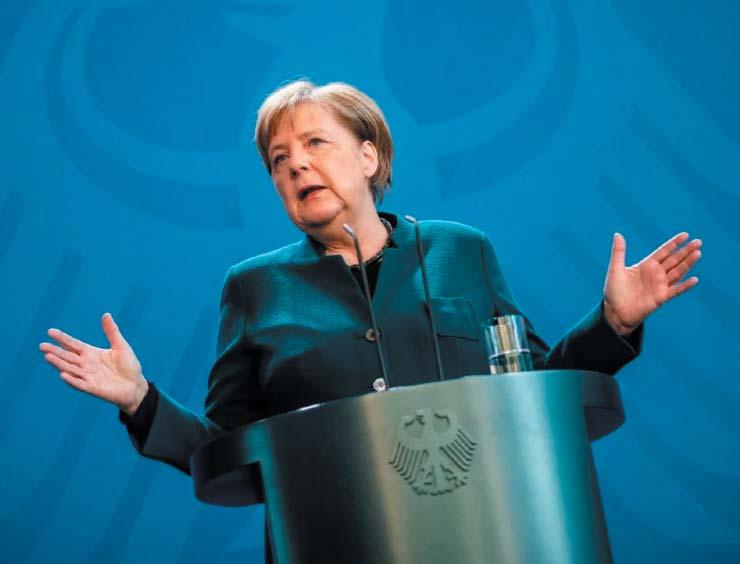
EasyJet reports the worst results in its 25-year history

German policy makers warned against easing of current par cularly tough period, with the airline fl ying just 38 percent of its planned capacity during the peak holiday season. Chief executive Johan Lundgren noted the company had responded “robustly and decisively” to the crisis and cheered “welcome news” on a possible vaccine. In November, two vaccine candidates have revealed posi ve results, which has raised hopes that everyday life around the world could be returning to normal in the fi rst half of next year. S ll, the vaccine is not expected to come through quickly enough to salvage the winter season for the avia on industry, with airlines everywhere slashing capacity. EasyJet noted that it does not expect to fl y more than about 20 percent of its planned services in the October to December quarter amid a resurgence of the virus in Europe: “While we expect to fl y no more than 20 percent of planned capacity for the fi rst quarter of 2021, maintaining our disciplined approach to cash genera ve fl ying over the winter, we retain the fl exibility to rapidly ramp up when demand returns,“ said Lundgren, adding that the company knows it’s customers want to fl y, and the underlying demand is strong.

President Xi of China pledges to open up its 'super-sized' economy
Chinese president Xi Jinping has said China will open up its "super-sized" economy to import more high-quality goods and services. China will also sign free trade pacts with more countries, he said on Thursday. Mr. Xi was speaking at the Asia-Pacifi c Economic Coopera on (APEC) forum, which includes the US and Russia. It is as yet unclear if US President Donald Trump will be speaking at the event, which con nues on Friday. Mr. Trump has previously used the event to lay out his compe ng vision for the future of global trade. China and the US have been involved in a trade war since 2018 with a number of fl ashpoints over import taxes and Chinese technology fi rms opera ng in America. Mr. Xi also used Thursday's APEC speech to deny that China would be pulling away from other economies - known as decoupling - and warn against protec onism. "We will not reverse course or run against the historical trend by 'decoupling' or forming a small circle to keep others out," Mr. Xi said.
Free trade Mr. Xi's comments come off the back of signing the world's largest regional free-trade agreement over the weekend, encompassing almost a third of the world's economic output. The Regional Comprehensive Economic Partnership (RCEP), almost a decade in the making, includes China, Japan, South Korea and 12 other Asian na ons. "In today's world where economic globalization has become an irreversible trend, no country can develop itself by keeping its doors closed," Mr. Xi added. However, China is involved in a number of trade disputes with rival economies, including Australia which it has imposed import tariff s of up to 80% on barley. Last month, Mr. Xi and other Chinese leaders laid out a blueprint for China's fi ve-year plan and key objec ves for the next 15 years. They include a goal to turn China into a "high income" na on by 2025 and advance to a "moderately developed" na on by 2035.

Nissan warns on its UK future without a Brexit deal
With a Brexit deadline just days away, reports suggested that the company Britain's biggest car plant "will not be and Toyota Motor Corp would do so. sustainable" if there is no deal, Nissan "We are absolutely not thinking that has warned. The company employs and we are not discussing it," he said. 7,000 workers at its Sunderland factory but said that increased tariffs Addi onal costs would raise costs. It cau oned that any delay in overseas supplies of parts because of new customs checks could slow produc on. Nissan warned in June that the prospect of addi onal costs from tariff s and possible border delays threatens the viability of its UK business. The EU has warned the UK it has less than 10 days le to secure a deal that will govern trade from next year. Nissan said there must be agreement on a free-trade deal by next week if it is to be ra fi ed in me for the end of the Mr. Gupta told the BBC the EU was the Sunderland factory's biggest customer and warned that Nissan's commitment could not be maintained if there was not tariff -free EU access. Nissan's new hybrid Qashqai model, which will go on sale next year. It is the third generation of the Qashqai, which came out in 2006 and is Brexit transi on period. "If it happens "We are the number one carmaker in the plant's most successful car. The without any sustainable business case the UK and we want to con nue," he Sunderland factory also makes Juke obviously it is not a ques on of Sun- said. and electric LEAF models. Mr. Gupta derland or not Sunderland, obviously "Having said that, if we are not ge ng added that the company is ready to our UK business will not be sustaina- the current tariff s, it's not our inten- meet Britain's revised plan to move ble, that's it," Nissan's Chief Opera ng on but the business will not be sus- up a UK ban on new petrol and dieOffi cer Ashwani Gupta told Reuters. tainable. That's what everybody has sel cars and vans to 2030 from 2035. He said Nissan was not seeking com- to understand." "That is not only the UK's transi on pensation from the UK for costs Nissan's Sunderland plant opened plan, every country is talking about incurred from any no-deal Brexit, a er in 1986 and is scheduled to build electrifi ca on. We are ready," he said.
Moderna submits Covid-19 vaccine for FDA regulatory approval
A front-runner coronavirus vaccine candidate developed by Moderna, a biotech fi rm based in Massachuse s, has been submi ed for regulatory approval. The company commented on the current situa on, no ng that it will ask the US Food and Drug Administra on for emergency use authoriza on a er comple ng its Phase 3 trial, fi nding that vaccine was 94,1 percent eff ec ve against the Covid-19. What is more, Moderna said that the vaccine was 100 percent effective at preventing severe cases of the disease. Interes ngly, these results were iden cal across all age, race, and gender categories, with the most common side eff ect being fa gue, muscle and joint pain, and headaches. Moderna’s trial involved 30,000 people: half of them were given the vaccine candidate, and the other half — a placebo. Of this group, the scien sts recorded 196 cases of Covid-19, only 11 of whom were from the group that had been given the vaccine. There were 30 cases of serious illness — all of them in the placebo group. So of the 15,000 people given the vaccine, not one became seriously ill with Covid-19 during the trial period, the company said. “We believe that our vaccine will provide a new and powerful tool that may change the course of this pandemic and help prevent severe disease, hospitaliza ons, and death,“ Stephane Bancel, Moderna chief executive, said in a statement.


London loses status as World Capital of Aviation
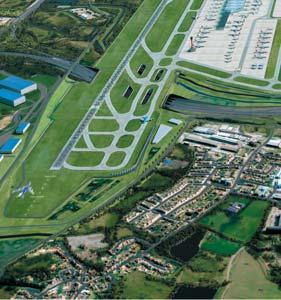
A er decades as the world’s leading city for avia on, London has lost its crown, as a result of the coronavirus pandemic. With Europe’s busiest airport, Heathrow, and the world’s busiest single-runway airport Gatwick, the capital handled 126,5 million passengers in 2019 — more than any other city. Once Stansted, Luton, London City, and Southend were added, the UK’s biggest metropolis looked unrivalled, with tens of millions more passengers annually compared to any other city. What is more, it had far more routes than any other city as well — measured as connec vity. But according to the latest fi gures from the Interna onal Air Transport Associa on (IATA), London’s connec vity has fallen by two-thirds. It is now in eighth place — behind fi ve Chinese ci es, as well as two US hubs. The fi rst four places are taken by Shanghai, Beijing, Guangzhou, and Chengdu followed by Chicago, Shenzhen, and Los Angeles. New York, Tokyo, Bangkok, Hong Kong, and Seoul have also dropped out of the top 10. Last month, Heathrow airport reported a slump in the business of 82 percent compared with a year earlier, calling it “the eighth consecu ve month of catastrophic decline”. Sebas an Mikosz, senior vice-president for IATA, noted that “In a short period of me we have undone a century of progress in bringing people together.”

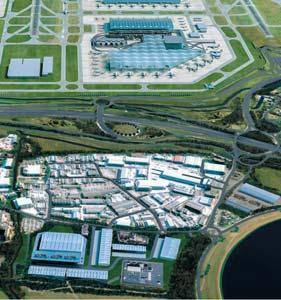


Boeing 737 Max cleared to fl y passengers again after deadly crashes

The Federal Avia on Administra on On November 30, Italy fi ned US technology giant Apple $11,97 million for giving “misleading“ information in advertisements and promotions regarding the water-resistant propture of being water-resistant up to 30 minutes at a depth ranging from 1 to ratory tests with sta c and pure water It does not clarify this in promo ons“, in a statement. Also, it said Apple’s when the iPhone models concerned were damaged by liquids amounted to “ an aggressive commercial practain misleading informa on in their Plus, iPhone XR, iPhone XS, iPhone XS Max, iPhone 11, iPhone 11 Pro, and iPhone 11 Pro Max. This latest fine comes a little over two years a er the Italian regulator fined Apple alongside Samsung for (FAA) has cleared the Boeing 737 Max to fly for the fi rst me since the plane was involved in two deadly crashes within fi ve months of each other. On November 18, FAA Administrator Steve Dickson signed an order that a total of $11,99 million for a pair of viola ons, including not giving its customers enough informa on about their devices’ batteries, as well as paves the way for the troubled aircra to return to commercial service. Dickson said he fl ew the 737 Max himself for two hours in September to personally evaluate the changes the company made to the fl ight control so ware. “During the past 20 months, and my personal experience fl ying the aircra , I can tell you now that I am 100 percent comfortable with my family fl ying on it this morning, ” he noted. The FAA says its safety staff has “worked diligently to iden fy and address the safety issues” that contributed to the crash of Lion Air Flight 610 on October 29th, 2018, followed by the crash of Ethiopian Airlines Flight 302 on March 10th, 2019. The Boeing 737 Max has been grounded since March 2019 following two fatal crashes that killed a total of 346 passengers and crew members. Boeing continued to manufacture the airplane, but in December 2019, the company announced plans to halt produc on at its Renton, Washington manufacturing plant. Produc on resumed in May 2020 but at a much on workplace safety and quality.

Italy fi nes Apple nearly $12 million over misleading claims
er es of its smartphones. “Apple’s fea4 meters is actually only valid in laboand is not under normal use condi ons. the Italian Compe on Authority said refusal to provide warranty service ce“. It was reported that the smartphone models in ques on, which conpromo ons, are iPhone 8, iPhone 8 thro ling older devices with so ware updates. Back then, Apple was fi ned lower rate and with a renewed focus thro ling the performance of older iPhones without warning. In the US, “ba erygate” eventually led to Apple agreeing to a pair of se lements totaling hundreds of millions of dollars.



The Rise of P2P Lending in Europe

Before 2005, the concept of lending money by one individual to another has obviously existed despite never being a mainstream solu on within a na onal economy. Since this date, Peer to Peer lending has existed primarily in both Europe and North America as an alterna ve to the traditional notion of mainstream lending for both lenders and borrowers, however in more recent mes excep onal growth has developed as a result. But what exactly is it and why is it rising signifi cantly? By Ma hew Meehan Peer to Peer lending or ‘P2P’ is a fi nancial process where an individual/ business can choose to lend money to other individual/business in return for an amount of subsequent profi t. As the lender, that party receives this profi t as a percentage of interest as the money is paid back to them in organised instalments. Operated via websites known as ‘pla orms’, these serve as virtual marketplaces that bring together those people who wish to make addi onal revenue on their savings or free money while providing this fi nancing to those who either cannot achieve bank loans or simply wish to engage with a more personal provider. These pla orms are essen ally middlemen and as there is no fi nancial ins tu on to take over this role and apply high fees to the process, this provides a big advantage as the outlay is much less which allows for a lower rate of interest to be available to the borrower. This system works through the adoption of multiple different models, however the most common and o en used route is through the standard form of transac on. In this process, the lender creates an account in order to leverage an amount of money on their chosen platform, before then having this advertised and subsequently applied for by the borrower who is then assessed and scored in order to provide the lender with a predicted pattern of repayment behaviour so they can then discuss the interest terms they wish to set. Alternative models differentiate themselves through the funding streams provided, with loan originators being one op on as they will market themselves and provide platforms with a higher amount of consistent cash often not matched by individual investors, as well as tradi onal banks who instead sign individual agreements with the borrower before selling these loans to the platform in order to make them responsible for managing repayments. The existence of the pla orm is crucial for the success of the P2P lending stream as they are the legal authority on every agreement, and so therefore are responsible for collecting payments, dealing with debtors, legally recouping loans in the event of default and full bankruptcy. Perhaps just as importantly, they maintain the rela onships of the investors and the borrowers as mistreatment and bad rates would cause their supply chain to cease to exist. The types of lenders include both private usually medium to high net worth individuals and institutional based investors such as banks have in recent years been further accommodated to provide a level of funding, especially as while they may not have been able to lend individually to consumers, the one to one and private funding abili es allow the tailoring of interest figures against the customer profile usually at lower rates than they can off er within their branches. The profi le determines risk, the cost to the lender to offset this risk in terms of interest and the most acceptable repayment terms in which to carry this out. These lenders can also choose whether they would prefer to share their investment across a number of poten al clients or choose one individual who they would prefer to lend to. The borrowers tend to feature more business-based customers while also being fi lled by private individuals who need general fi nancial assistance or who are aspiring entrepreneurs. They follow the applicable criteria of the credit rating system to determine their eligibility for diff erent terms and due to the open nature of a private loan, the fi nancier can help contribute to borrower assessment in order to decide on who receives their investment. The most common borrower is the small to medium enterprise (SME) which due to the inability to gain direct bank investment therefore turns to

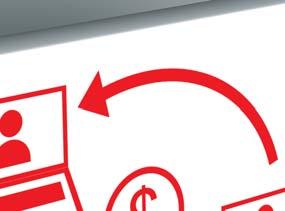

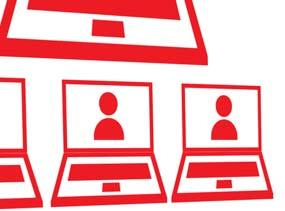



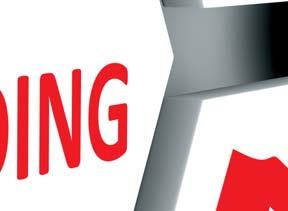

the alterna ve funding source to off set their risks as a young company that lacks the necessary establishment. This kind of investment opportunity o en appeals to the individual investor who have smaller loans to provide yet is excited by the poten al growth of the SME and poten ally could invest and make further returns in the future should there be a success in their business rela onship.




But why is this an a rac ve and growing market?
This is due to the much smoother and efficient business model that is provided without the bureaucracy of the tradi onal lender and its me-consuming prac ces in mes of rapid expansion and a need for swi er fi nancing. Such ease of use and lower rates provide crucial advantages to both personal and professional borrowers who benefi t from a wide catalogue of off ering from simple loans to invoice fi nancing, property loans, retail opportuni es, further investment and much more. This is also safeguarded by the surprising amount of eff ec ve regula on off ered by the industry- which while unusual for a free-fl owing fi nancial arrangement, shows how the platforms have embraced the idea whilst providing legi miza on for the consumers and regulators, even crea ng their own self-regula on authori es that can manage this process. Such is this security, that the organisa ons such as the SME’s are provided adequate protec on to secure the future of their fl edgling business without the risk of a fi nancial provider adjus ng the interest and possibly forcing them into new and unviable arrangements. These provisions having been around since the credit crunch of 2008 are responsible for the huge growth due to their ability to provide fi nance and independent lending opportuni es, following the banks and financial ins tu ons re cence to provide monetary support in mes of hardship. This availability of private funds has fi lled those gaps and only con nued to grow in the me since, especially as these same big firms have been seen to distort the interest rates while failing to provide any alterna ve that is acceptable and has therefore led to an industry worth over £1.29 Billion In the current market. There is also the contribu on of societal development, with evidence to suggest that many areas suff er from poor networks of brick and mortar branches due to technological advancement and erosion of the high streets across Europe leaving brand loyalty at an all- me low with such customers receiving a poor consumer experience. In the current genera on, the upwards trend of highly educated, technologically minded drivers of innova on within the younger popula on has created a constantly evolving need for new sources of fi nancing that also overlook their inexperience as a possible factor of rejection in their enterprise or personal fi nancing needs. By turning the process virtual whilst also s ll providing the personal element of real investors that takes away the tradi onal representa on of needing a fi nancial ins tu on whose focus is on corporate greed, this provides great demand for these platforms especially for the investors also who as primarily smaller lenders fear for their fi nancial future when considering the vola lity of the alterna ves such as stocks and shares, and instead are provided a simpler, easier investment opportunity with actual developmental prospects.
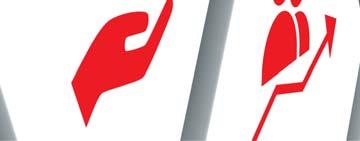

Most British companies will make it through Brexit – but some might truly struggle
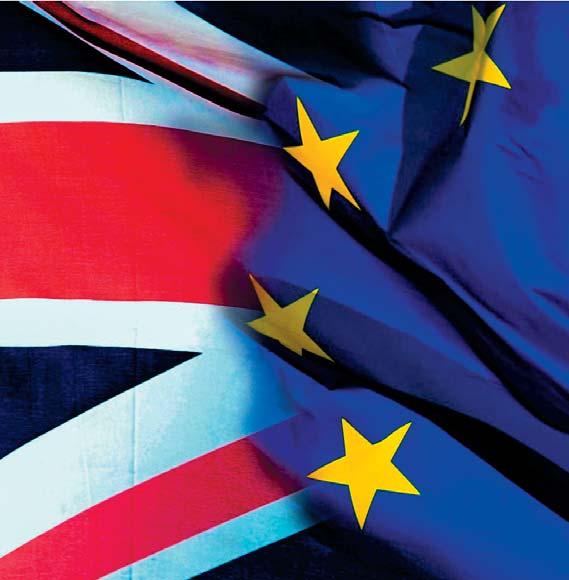
Bri sh businesses could poten ally take advantage of Brexit, but it will depend on agreements between the UK and the EU, the robustness of individual companies, and the scope of their ambi on. While change in business o en presents opportuni es, the degree of difficulty and uncertainty could be insurmountable for many companies already weighed down by other concerns. If negotiations do not markedly improve, the United Kingdom is heading for a calamitous exit from the European Union (EU) on January 1st 2021. This could spell disaster for any number of companies, par cularly those exposed to more fric on at borders and the resump on of World Trade Organization rules regarding tariff s.
Unprepared for greater fric on
In a UK staring down the barrel of a disorderly Brexit, a recent survey of more than 500 companies by the Bri sh Chambers of Commerce found that 51% had not taken any of the eight steps recommended by the UK government to prepare for changes in the movement of goods to and from the EU. On the other side of The Channel, three major European industry bodies came together in June to warn of the "signifi cant nega ve consequences" of a no-deal scenario wreaking havoc on the trade process through tariff s and disrupted supply chains. "These can be expected to include a major decrease in export volumes from the EU to the UK, a signifi cant fall in revenue, and consequen al job losses. The impact on SMEs, farmers and agri coopera ves would be par cularly detrimental," said the joint statement from the European farmers body Copa-Cogeca, the agri-food trade body Celcaa, and the industry confedera on FoodDrinkEurope. The ongoing Covid-19 pandemic further complicates the situation and exacerbates the possible economic harm that companies and the public will face over the next few years. Some companies, such as Sony, have already announced plans


to relocate headquarters out of the UK to avoid aggravated disrup on to their opera ons.
Industries worst affected
Beyond job cuts, food prices in the UK will probably be where many citizens feel the s ng of changing regula ons. With 79% of imported food in UK supermarkets coming from the EU, households will quickly no ce the diff erence. Sectors worst aff ected by the exit are likely to be agriculture, the automo ve industry, and fi nancial services – all of those for whom customs and du es changes will constrict interna onal areas of business. With so many complica ng factors at play, Bri sh businesses cannot aff ord any of the conven onal problems that hinder company performance at the best of mes. The security printer De La Rue, which produces currency and passports, has been showing signs of strain. Commentators have highlighted financial difficulty and disrup on at the top, with the company making changes to its directorate in a bid to stem the de. “The business seems to have fallen fl at on its face as a result of poor management decisions at a me when it needed superior leadership to navigate diffi cult market challenges,” said Russ Mould, an investment director at AJ Bell, speaking last year a er De La Rue cut its dividend. “One has to wonder how long De La Rue can survive without a radical change to its business model,” he added. In the years since the 2016 Brexit referendum, the company has suffered mul ple setbacks including two profi t warnings, a (now-dropped) corrup on inves ga on in South Sudan, and a failure to secure the contract to print the UK’s new post-Brexit passports. Soaring debt and revenue losses make the prospect of a Brexit winter all too concerning. In the banking industry, the regulatory changes are going to have a massive impact. A number of banks including Barclays announced recently that they will no longer be able to provide services overseas. UK lenders will lose their EU banking licenses, making operations in certain countries prohibi vely expensive. The resulting loss of customers could be harmful to business. In par cular, Barclays has a series of other non-trivial concerns. The company’s shares are dropping, its online banking services are proving temperamental, and the press coverage of the high court legal dispute with the fi nancier Amanda Staveley is grabbing a en on for all the wrong reasons. A year-on-year shares drop of 43 percent has seen the company’s future thrown into doubt due to the coronavirus pandemic. When combined with a no-deal Brexit, the future looks bleak.



Not everyone will suff er
There are some industries that will demonstrate strong resilience in the face of a Covid-exacerbated Brexit. In par cular, the UK’s (more specifically, London’s) technology sector. London has around 45 unicorn startups – those that reach a valua on of at least $1 billion – 4 mes the number of the next leading tech hub, Berlin, which has just 10. While Brexit will undoubtedly aff ect the fl ow of tech talent from the con nent, and the combined harm of the virus and the exit will punish the economic capital – London will carry this technology sector advantage going forward. Given the contrarian success story of technology companies’ fi nancial performances amid the economic trauma of a pandemic, UK companies in this sector will probably fi nd their way to a winning posi on, even a er the Bri sh departure from the EU.





AIMING TO SIMPLIFY CUSTOMS CONTROLS, EU COMMISSION PROPOSES ‘SINGLE WINDOW’


by Theo B. Wilson
In order to digitalise and streamline interna onal trade processes, the European Commission has proposed an ini a ve called the ‘Single Window Environment for Customs.’ The initiative is intended to make it easier for authorities involved in goods clearance to exchange electronic information submitted by traders, who will be able to submit the information required for import/export only once. The aim of the Single Window Environment is to enhance cooperation and coordination between authorities, thus facilita ng automa c verifi ca on of non-customs formalities for goods entering or leaving the EU. Wri en by Theo B Wilson This proposal is the first concrete deliverable of the EU’s recently adopted Action Plan for improving the Customs Union, an ambitious project intended to modernise border controls over the next decade; facilitating trade, improving safety and compliance checks, and reducing administra ve burdens for companies. Currently, formali es required at the EU’s external borders often involve diff erent authori es in charge of diff erent policy areas. As a result, businesses have to submit informa on to several diff erent authori es, each with their own portal and procedures. According to a press release, this proposal is the fi rst step in crea ng a digital framework for enhanced coopera on between all border authori es through one ‘Single Window’: “The Single Window will enable business and traders to provide data in one single portal in an individual Member State, thereby reducing duplica on, me and costs. Customs and other authori es will then be able to collec vely use this data, allowing for a fully coordinated approach to goods clearance and a clearer overview at EU level of the goods that are leaving and entering the EU.” The press release describes the project as “ambitious,” noting that it will entail signifi cant investment at both EU and Member State level in order to be fully implemented over the next decade. The European Commision envisions the Single Window as a digital solu on for quicker and more effi cient sharing of electronic data between diff erent government authori es involved in goods clearance at the border. Once fully rolled out, traders will have to submit informa on only once. Customs and other authori es will then be able to automatically verify that the goods in ques on meet EU requirements and that the necessary formali es have been completed. Once fully implemented, the Single Window will replace the current, fragmented system border checks, seen as a burden for traders, ineffi cient for authori es, and vulnerable to error and fraud. Creating a fully functioning Single Window Environment will require fi rm commitment from the many diff erent authori es that work at the EU borders. Authori es will need to set work together in se ng up their single portals at a na onal level, and invest in the digital transformations necessary for such a system to work. This will involve agreeing on governance framework, setting up common IT solu ons, crea ng an integrated and automated set of processes for clearing goods, and figuring out how to synchronise data, in order to improve the processes for cooperating with authori es in partner countries. The EU Commision notes that each Member State should set up a na onal Single Window portal, through which businesses can upload the informa on related to goods being brought in or out of the EU. These na onal portals will link up through the digital framework put in place by the Commision, allowing all relevant authori es access to relevant data, allowing easier collabora on on border checks. The ultimate aim, according to the Commision, is that the na onal Single Windows will replace the current mul tude of diff erent portals, creating a “more streamlined, coordinated and holis c approach to goods clearance within the Union.”














